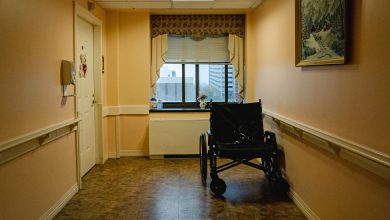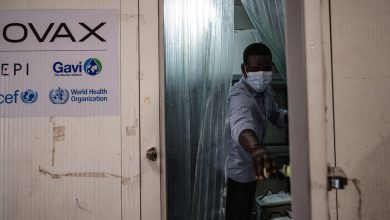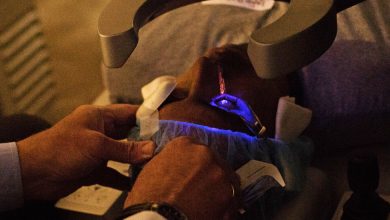Pfizer Asks F.D.A. to Expand Booster Eligibility to All Adults

WASHINGTON — Pfizer and BioNTech asked federal regulators Tuesday to authorize their coronavirus booster shot for those 18 and older, a move that would likely make every adult in America eligible for an extra injection.
The Food and Drug Administration is expected to grant the request, perhaps before Thanksgiving and well ahead of Christmas travel and gatherings. The prospect of all 181 million fully vaccinated adults in the nation having access to extra shots is a turnaround from two months ago, when an expert advisory committee to the F.DA. overwhelmingly recommended against Pfizer-BioNTech’s request to authorize boosters for all adult recipients of that vaccine.
At the time, several committee members raised doubts about whether young, healthy people needed boosters. But the Biden administration has been eager to offer extra shots widely since August, when President Biden announced that “the best way to protect ourselves” was for every adult to get a booster.
Mr. Biden initially wanted Americans to start receiving boosters in late September, but the beginning of the campaign was delayed after regulators insisted they needed more time to review safety and efficacy data. Some global public health experts said it would be better to focus on getting initial shots to poorer countries with low vaccination rates than to distribute extra shots here so soon.
If regulators approve Pfizer’s request, President Biden will have made good on his pledge to offer every adult a booster shot — although the choice would be limited to Pfizer’s vaccine for many.
For now, only those 65 and older, and adults who are at special risk because of medical conditions or where they work or live, can get booster injections if they initially got Pfizer-BioNTech or Moderna’s vaccine. The F.D.A. authorized boosters for all Johnson & Johnson recipients because that vaccine offers less protection. People are allowed to chose which of the three vaccines they want for their extra shot.
Nearly 25 million Americans have gotten boosters so far, including people with immune deficiencies who became eligible in August. That amounts to about 14 percent of people who have been fully vaccinated, a number that could rise sharply if all other adults become eligible for a Pfizer-BioNTech booster. While the eligibility categories are quite broad, at least 30 to 40 percent of vaccinated adults are still excluded, according to estimates.
Moderna is expected to soon submit its own request for the F.D.A. to broaden eligibility for its booster. Some experts predict that the agency might authorize broader use of Moderna’s booster but exclude young men, because of concerns about a rare condition linked to the vaccine that appears to affect them disproportionately. The condition, called myocarditis, is an inflammation of the heart muscle.
Some countries in Europe have already authorized booster shots for all adults; Israel is offering them to everyone 12 and up. On Tuesday, Canadian officials authorized a booster dose of the Pfizer-BioNTech vaccine for everyone 18 and older.
In the United States, experts have been fiercely divided over whether booster shots are necessary for the entire population. Many say the vaccines continue to offer robust protection against severe disease and hospitalization, especially for younger people without underlying medical conditions.
There is virtually unanimous agreement that vaccinating the roughly 60 million Americans older than 11 who have yet to receive even their first shot should remain the government’s highest priority.
For younger, healthy people, the benefits of a booster injection will be marginal, according to Dr. Eric Rubin, a member of the F.D.A.’s advisory panel and an adjunct professor of immunology at the Harvard T. H. Chan School of Public Health.
Even so, some leading experts argue that the case for booster shots has grown stronger. Dr. Nahid Bhadelia, director of Boston University Center for Emerging Infectious Diseases Policy and Research, said that “there’s some stronger data” now than there was in September, when the F.D.A. advisory committee rejected Pfizer’s initial request.
She added, “I think that the boosters now seem to look like they may help prevent severe disease for a lot more people than we thought previously.”
Dr. Rubin said he was reassured by the fact that as Israel began vaccinating younger people, “they really weren’t seeing any significant safety signals.”
Earlier this month, Dr. Anthony S. Fauci, the federal government’s top infectious disease expert, said the most recent data from Israel shows that its aggressive booster campaign has limited the rates of severe disease, hospitalization and death there. He called the results “rather dramatic.”
Federal officials have been watching Israel’s experience closely because its vaccination campaign took off quickly and it has a nationalized health system that allows outcomes to be more easily monitored than in the United States.
An Israeli study published in the scientific journal The Lancet in late October compared about 730,000 people who had received a booster dose in August or September with individuals who had received only two doses of the Pfizer-BioNTech vaccine at least five months earlier. The study included recipients 12 and older; the median age was 52.
Compared with the two-dose recipients, the boosted recipients had a 93 percent lower risk of hospitalization, 92 percent lower risk of severe disease and 81 percent lower risk of death, the study found. The boosted recipients were evaluated between one week and nearly two months after their third dose.
Pfizer and BioNTech said their request is based on data from a clinical trial in the United States and elsewhere that included more than 10,000 volunteers. They said the third injection countered the vaccine’s waning potency over time. After the third shot, the vaccine’s efficacy rate against symptomatic disease was up to about 95 percent, they said.
The F.D.A. has the authority to modify Pfizer-BioNTech’s current emergency use authorization and is not expected to reconvene its advisory panel. Dr. Rubin said he was fine with that.
“The FDA got a good sense of what the panel was concerned about, and they’re in a good position to make a judgment themselves now,” he said.
Moderna could follow with a request much like Pfizer’s. But winning authorization may be more complicated because of concerns about rare cases of myocarditis, especially in men under the age of 30 who have received two doses of Moderna’s vaccine. Similar concerns have been raised about the Pfizer-BioNTech vaccine, but to a lesser extent.
If the regulators approve Pfizer’s request, it would to some extent just officially condone what health officials say they already see happening frequently. Many Americans appear to be getting booster shots whether or not they are officially eligible, so holding onto complicated eligibility categories may be futile, some officials said.
“A move of this sort — if it is supported by the data, which I haven’t seen — is a recognition of that reality,” said Dr. Nirav D. Shah, Maine’s top health official and the president of the Association of State and Territorial Health Officials.
“Provided the data shows that the boost is worth it, this is a good move,” he said.





